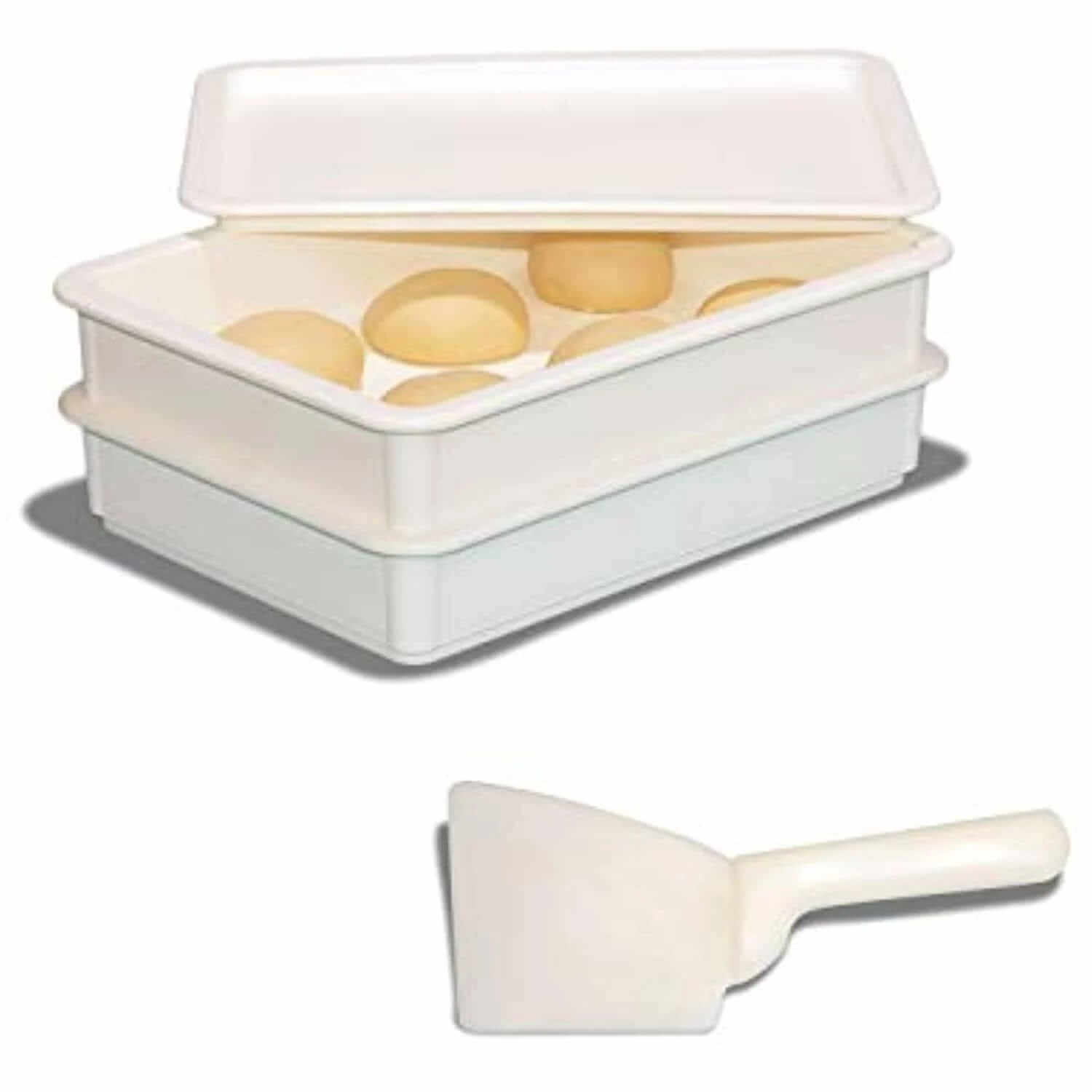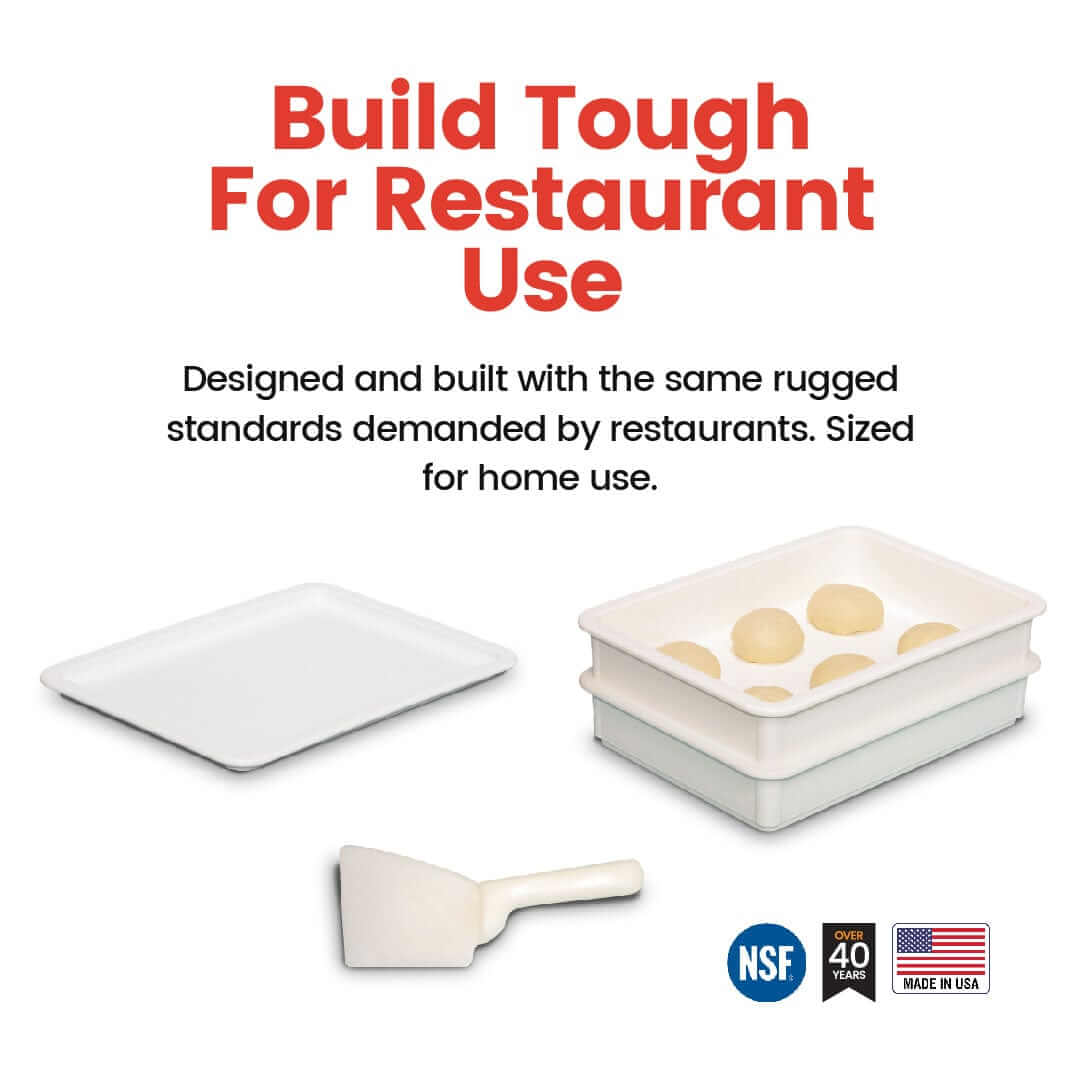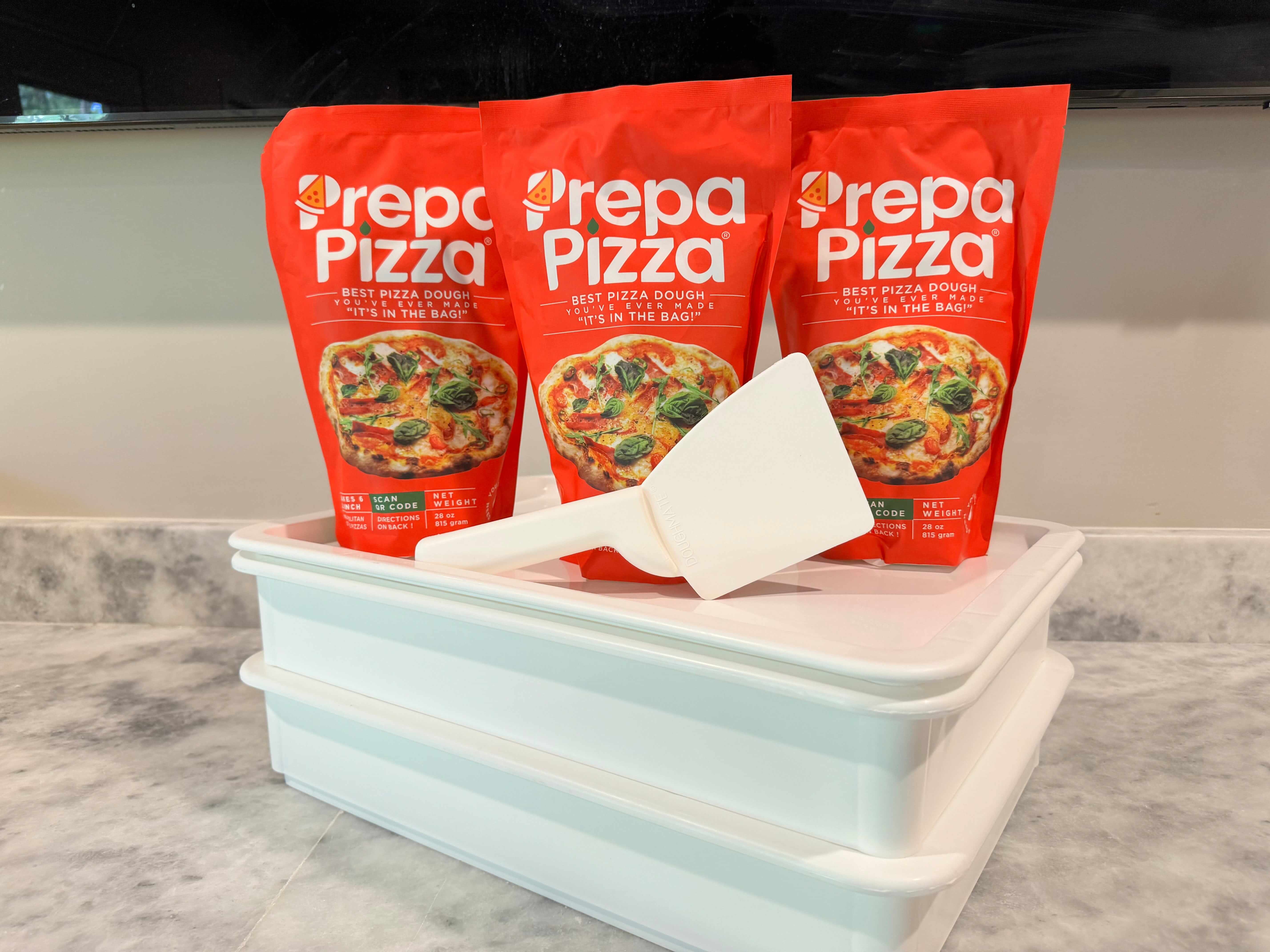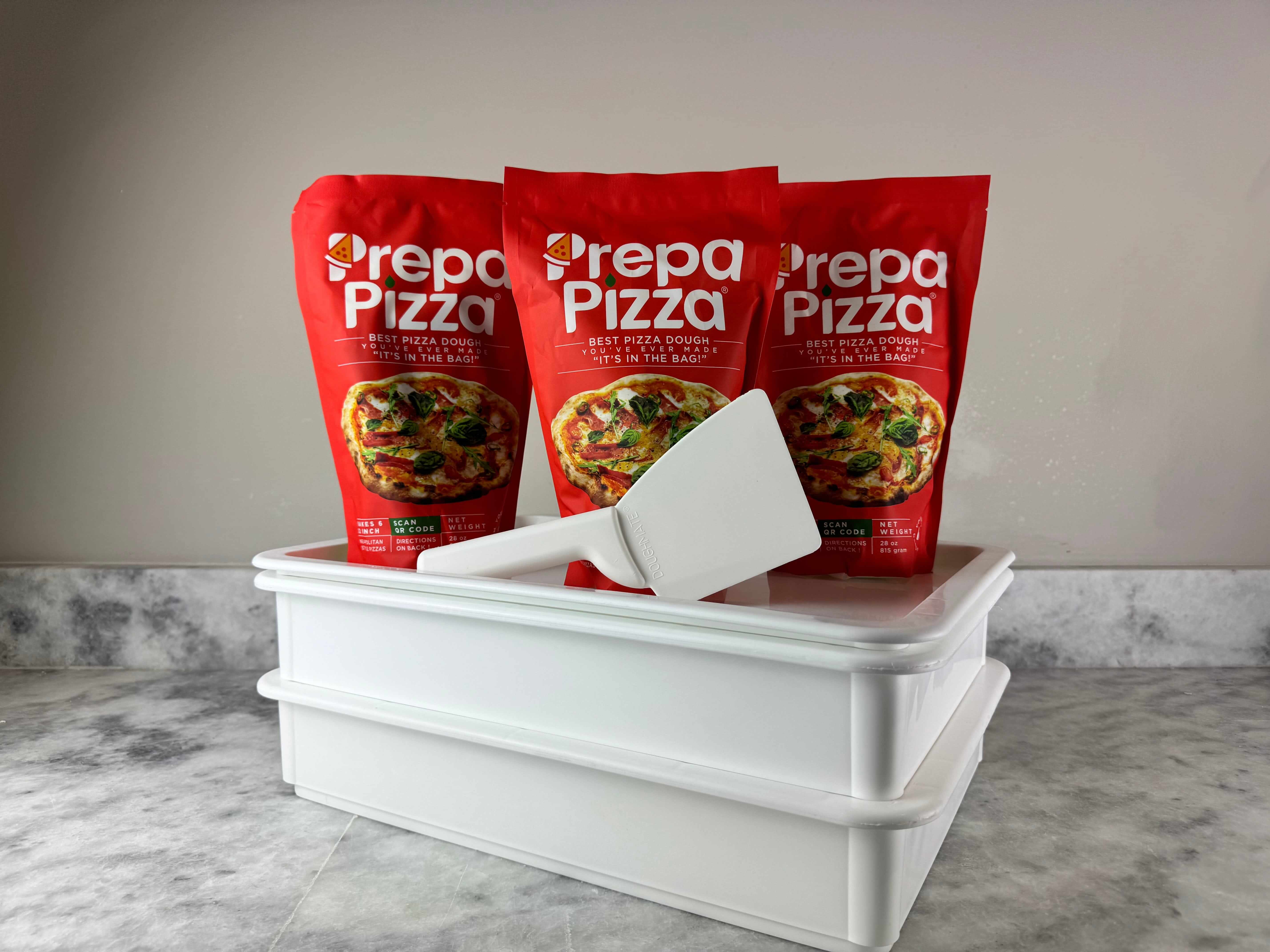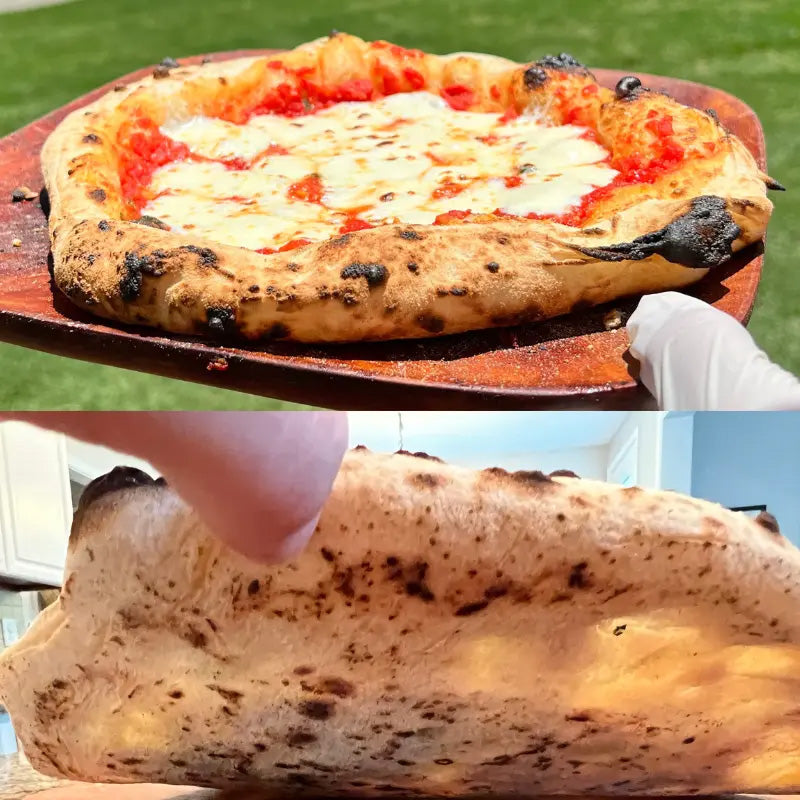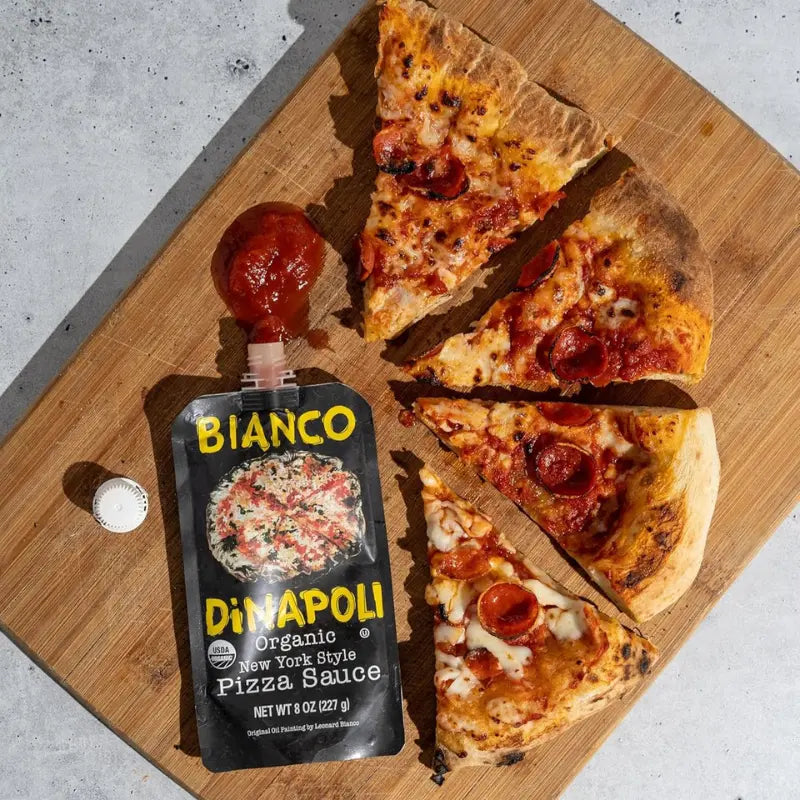
How Long to Proof Pizza Dough Explained for Perfect Results Every Time
Knowing how long to proof pizza dough is essential to achieving the perfect crust. Typically, pizza dough should proof for 1 to 2 hours at room temperature, or it can be cold-proofed in the fridge for 24 to 72 hours to develop deeper flavor and texture. Using premade dough like Prepa Pizza’s premium-quality option allows you to skip the initial prep while still controlling the proofing time to get the results you want.
Prepa Pizza provides restaurant-quality dough made with quality ingredients, giving you a reliable base for your pizza creations. You can find their premade dough kit here, designed for convenience without sacrificing that perfect rise and chew. Understanding proofing times helps you maximize the potential of dough like this, whether you want a quick turnaround or prefer a slow fermentation to enhance flavor.
Understanding Pizza Dough Proofing
Proofing pizza dough involves controlling the yeast activity and fermentation to develop texture, flavor, and rise. Key factors include timing, temperature, and yeast performance, all of which influence the dough’s ability to expand and create carbon dioxide bubbles. Using high-quality dough, like Prepa Pizza’s premade dough kit, ensures you start with the right balance of ingredients, making proofing more consistent and reliable.
With Prepa Pizza’s premade dough, you can focus on mastering fermentation stages without worrying about mixing or kneading, since the dough delivers restaurant-quality results straight from the package. Understanding how proofing works helps you optimize the rise and texture of every pizza you make.
What Is Proofing in Pizza Dough?
Proofing is the process where pizza dough is left to rise after it has been mixed and kneaded. During proofing, yeast ferments the sugars in the dough, producing carbon dioxide gas. This gas creates bubbles that expand the dough, making it lighter and softer.
In this stage, the dough's gluten structure strengthens, trapping the carbon dioxide bubbles and giving the crust its characteristic texture. Proper proofing develops more complex flavors through fermentation. The time dough spends proofing depends on factors such as room temperature, yeast type, and dough hydration.
When you use Prepa Pizza's quality premade dough, this step is easier to control because the dough has been prepared with consistent ingredient quality and yeast activity, ensuring predictable rise times and texture development.
The Difference Between Bulk Fermentation and Final Proof
Pizza dough proofing has two main phases: bulk fermentation and the final proof. Bulk fermentation occurs right after mixing and lasts until the dough has roughly doubled in size. This phase is crucial because it starts yeast activity at a larger scale and develops the dough’s flavor and strength.
After bulk fermentation, the dough is portioned into balls. The final proof happens when these dough balls rest again before shaping and baking. This step allows the dough to relax and mature, making it easier to stretch without tearing, while enhancing its rise in the oven.
Both fermentation stages rely on good temperature control—typically between 70°F and 85°F—and timing to balance yeast activity, preventing under or overproofing. Prepa Pizza’s premade dough comes ready for these stages, simplifying your process while delivering a perfect rise and texture.
The Role of Yeast and Fermentation
Yeast is a living microorganism that fuels pizza dough proofing through fermentation. It feeds on sugars in the flour, creating alcohol and carbon dioxide as byproducts. Carbon dioxide gas forms bubbles in the dough, causing it to expand and develop an airy structure.
Proper fermentation requires temperature control since yeast activity accelerates in warmth and slows in cooler conditions. Too little yeast activity results in dense dough; too much leads to overproofing, causing collapse.
Using Prepa Pizza's premade dough means you receive dough with balanced yeast levels and hydration, assuring consistent fermentation and ideal bubble formation during proofing. This reliable yeast activity contributes to a crust with well-developed texture and flavorful notes. For a detailed look at how to proof your pizza dough in different environments, see this guide.
How Long to Proof Pizza Dough
Proofing time is crucial to developing the right dough rise and texture. Whether you use room temperature, cold, or oven proofing, the ideal proving time varies based on method and your dough’s hydration. Using high-quality premade dough, like Prepa Pizza’s premium dough kit, can simplify this process while ensuring consistent results. You can find their dough options at Prepa Pizza Dough Kit.
Understanding how long to proof dough optimizes flavor and texture, preventing issues like over-proofing. Knowing when your dough is ready and recognizing over-proofed dough will help you achieve a perfect crust every time.
Recommended Proofing Times by Method
Proofing at room temperature typically takes between 1 to 2 hours, depending on the ambient temperature and dough hydration. Warmer environments speed up fermentation, while cooler rooms slow it down. For Prepa Pizza’s premade dough, expect roughly 90 minutes for optimal rise at about 75°F (24°C).
Cold proofing in the refrigerator is slower but enhances flavor. Expect 12 to 24 hours for a slow, controlled fermentation. This method suits dough kits like Prepa Pizza’s, allowing you to prepare ahead and develop more complex flavor profiles.
Proofing in an oven set to the lowest temperature or using the oven light can speed up the process to 30–60 minutes. This method provides a warm, stable environment, but be careful not to overheat the dough.
| Method | Proofing Time | Temperature Range |
|---|---|---|
| Room Temperature | 1–2 hours | 70–75°F (21–24°C) |
| Cold Proof | 12–24 hours | 35–40°F (2–4°C) |
| Oven Proof | 30–60 minutes | 80–90°F (27–32°C) |
How to Determine When Dough Is Ready
You can tell your dough is ready when it has roughly doubled in size and springs back slowly when gently pressed with your finger. This indicates optimal gluten development and fermentation. With Prepa Pizza dough, this usually coincides with recommended proofing times but may vary slightly based on your kitchen conditions.
Use the “poke test”: Press the dough lightly and observe how it reacts. If it slowly springs back but doesn’t bounce fully, the dough has proofed correctly. If it doesn’t spring back at all, it might be over-proofed.
Check dough hydration as well; dough with higher hydration can rise faster and may need shorter proofing. Avoid rushing this process, as under-proofed dough results in dense texture.
Signs of Over-Proofing
Over-proof dough appears very puffy but weak, sometimes collapsing easily under a light touch. You may notice a sour smell due to excessive fermentation. The dough can feel sticky and slack, making it difficult to shape.
If your dough has bubbles on the surface or shows signs of extreme expansion beyond double its original size, it is likely over-proofed. This affects texture, causing a loss of oven spring and a crumb that is overly airy or gummy.
To avoid over-proofing, stick closely to the recommended times and temperatures. Using a reliable product like Prepa Pizza’s premade dough helps reduce the risk since it is formulated for consistency and quality.
Methods for Proofing Pizza Dough
Proofing pizza dough involves creating the right environment for yeast to ferment, which impacts texture and flavor. You can proof dough at room temperature, in the fridge for cold fermentation, or use a controlled proofing box to speed up or optimize the process.
Many who use Prepa Pizza’s premium premade dough find these proofing methods enhance the dough’s quality even further. Prepa Pizza dough is made with restaurant-quality ingredients, ensuring consistent results whether you proof quickly or slowly. You can explore the Prepa Pizza Dough Kit for ready-to-proof dough.
Room Temperature Proofing
Proofing at room temperature is a common method that usually takes 1 to 3 hours, depending on ambient warmth and yeast activity. The dough should roughly double in size, becoming soft and bubbly. Ideal room temperature ranges from 70°F to 75°F (21°C to 24°C).
At this temperature, yeast ferments steadily, producing carbon dioxide that creates air pockets in the dough. Too warm, and the dough may overproof quickly, losing elasticity; too cool slows the rise.
Room temperature proofing is convenient if you want to use dough the same day. Using Prepa Pizza’s premade dough here means you can skip initial mixing and kneading, focusing directly on rising.
Cold Proofing and Cold Fermentation
Cold proofing, or cold fermentation, involves proofing dough in the refrigerator at about 38°F to 42°F (3°C to 6°C). This method significantly slows yeast activity, extending fermentation from 24 up to 72 hours or more.
Cold proofing develops deeper flavors and better dough structure because the slow fermentation allows enzymes to break down starches and proteins further. You will notice increased dough stretchability and a more complex taste after baking.
If using Prepa Pizza’s dough, cold proofing is ideal for planning ahead. Simply place the dough in a covered bowl or container, and allow gradual fermentation to enhance its qualities over time.
Using a Proofing Box
A proofing box provides a controlled environment by regulating temperature and humidity, often set between 80°F and 95°F (27°C to 35°C). This speeds up yeast fermentation and can achieve proofing in as little as 30 to 60 minutes.
Proofing boxes also prevent drying out by maintaining humidity, which keeps the dough surface soft. This method is especially useful when you need consistent, fast results regardless of room temperature variations.
When you use premade dough from Prepa Pizza in a proofing box, you gain precision and predictability in timing your pizza preparation. It ensures the dough rises evenly and is ready exactly when you need it.
Key Factors Affecting Proofing Time
Proofing time for pizza dough varies based on a few critical elements that control how quickly the dough rises and develops flavor. These elements influence yeast performance, dough texture, and the final crust quality.
Using premade dough from Prepa Pizza helps you start with a consistent base that balances these factors for reliable results. You can explore Prepa Pizza’s premium dough options at their Prepa Pizza Dough Kit product page to simplify your preparation.
Yeast Type and Activity
Yeast is the driving force behind dough rising. Common types include active dry yeast, instant yeast, and fresh yeast. Each acts differently depending on how quickly it activates and ferments sugars.
Active dry yeast needs to be dissolved in water before mixing, which slows initial rise but improves flavor with longer proofing.
Instant yeast can be mixed directly with flour, speeding fermentation. It produces quicker results but may give less complex flavor with shorter proof times.
Fresh yeast offers robust yeast activity but spoils faster and requires careful storage.
The activity of yeast varies with age and storage conditions. If yeast is less active, proofing takes longer. With Prepa Pizza dough, yeast is optimally balanced and stored for consistent rising, reducing guesswork in proofing time.
Ambient Temperature
Temperature controls the speed of fermentation. Warmer temperatures accelerate yeast activity, shortening proofing time.
Ideal proofing happens between 75°F to 85°F (24°C to 29°C). At room temperature, dough typically proofs in 2-4 hours.
If it’s too cold, yeast slows down, extending proof times to 8-24 hours for cold-proofing methods. Too warm, above 90°F (32°C), causes rapid yeast activity that can degrade dough quality.
Maintaining consistent temperature ensures steady rise without overproofing. When using Prepa Pizza premade dough, you can better gauge proofing needs because the dough is calibrated for typical kitchen temperatures.
Dough Hydration and Flour Strength
Dough hydration, the percentage of water relative to flour weight, affects proofing speed and dough texture.
Higher hydration (70% or more) creates a looser dough that ferments faster and develops more air pockets, leading to a light, airy crust.
Lower hydration (50-60%) produces a denser dough that takes longer to proof but is easier to shape.
Flour strength also plays a role. Using bread flour with higher protein content provides more gluten, supporting gas retention during proofing. This allows longer fermentation without collapse and improves chewiness.
Prepa Pizza dough uses high-quality ingredients, including strong flour and optimal hydration, delivering dough that proofs predictably while developing texture and flavor suited for restaurant-quality pizza.
Proofing Techniques for Different Pizza Styles
Proofing times and methods vary depending on the style of pizza you want to make. Understanding these differences helps you develop the ideal gluten network and texture for each crust. Using Prepa Pizza’s premade dough, which is crafted with quality ingredients and designed for professional results, can simplify the proofing process while ensuring consistent crust performance. You can find their premium pizza dough kit here.
Adjusting proofing techniques according to dough hydration and thickness is essential. Neapolitan and New York-style pizzas require specific gluten development and handling to achieve their characteristic chew and structure.
Neapolitan Pizza Dough Proofing
Neapolitan pizza dough typically has a high hydration level, around 60-70%, which promotes a soft, airy crumb with an open gluten structure. For this style, short bulk fermentation at room temperature—usually 8 to 12 hours—is common to allow yeast activation and gluten development without overproofing.
After bulk fermentation, dough balls should rest for at least 1 to 2 hours at room temperature. This second proofing stage, often called “final proof,” helps achieve the delicate yet strong gluten network needed to support the thin, elastic crust.
Because of the high hydration, gluten development happens faster with Neapolitan dough. Handling the dough gently during shaping preserves the gas bubbles and prevents excessive gluten tightening, ensuring a tender bite with a light, airy texture.
New York-Style Pizza Proofing
New York-style dough is denser and lower in hydration, usually around 55-60%, resulting in a thicker, chewy crust with a more developed gluten network. The proofing process generally involves a longer bulk fermentation, often 24 to 48 hours in cold fermentation, to build complex flavors and increase dough strength.
After cold fermentation, allow the dough balls to warm and proof at room temperature for 2 to 4 hours. This final proof reactivates the yeast and increases extensibility, which is essential for the dough to stretch evenly without snapping back.
This method enhances gluten structure and elasticity, suited for supporting the heavier toppings typical of New York-style pizza. Using Prepa Pizza premade dough calibrated for this style ensures you start with a balanced gluten network, reducing the complexity of long fermentation while maintaining texture consistency.
Tips for Achieving Perfect Pizza Dough Proof
To get the best results when you prove pizza dough, controlling key factors like timing, temperature, and visual cues is essential. Using high-quality premade dough like Prepa Pizza’s ensures you start with a consistent base, but proper proofing techniques still play a critical role in achieving the ideal texture and rise. You can find Prepa Pizza’s premium premade dough here.
By managing your environment carefully and assessing the dough’s readiness before baking, you’ll avoid common issues such as overproofing and uneven texture. Attention to detail during proofing transforms good pizza dough into great crust.
Preventing Over-Proofing
Over-proofing happens when dough is left too long to rise, causing it to collapse and lose structure. To prevent this, stick to recommended proofing times, which usually range from 1 to 3 hours at room temperature, depending on your dough's ingredients and yeast activity.
With Prepa Pizza’s dough, the fermentation is balanced for optimal rise, but proofing still needs monitoring. Watch for dough that starts to flatten or develop large bubbles on the surface—these are signs of over-proofing.
If you see these signs, store the dough in a cooler environment to slow fermentation or use it immediately. Keeping your proofing within proper limits maintains the strength of the gluten network and supports a light, airy crust.
Monitoring Proofing Environment
Temperature and humidity are critical for proper pizza dough proofing. The ideal temperature range is 75°F to 85°F (24°C to 29°C). Outside this range, yeast fermentation slows down or speeds up too much, causing inconsistent proofing.
Use a warm, draft-free space to proof your dough. If your kitchen is too cold, you can proof dough in the oven with the light on to maintain warmth without drying it out.
Humidity also matters. Cover your dough with damp cloth or plastic wrap to prevent the surface from drying and forming a skin. This ensures an even rise and better fermentation flavor.
Final Checks Before Baking
Before baking, perform simple tests to confirm your dough is perfectly proofed. Gently press two fingers about half an inch into the dough. If the indentation springs back slowly and only partially, the dough is ready. If it bounces back quickly, it needs more time.
Look for a dough surface that is slightly domed, smooth, and has visible air bubbles just beneath the surface. These signs show your dough has developed good gas retention and gluten strength.
Using Prepa Pizza’s premade dough, you should expect a consistent rise with a predictable proofing window. This consistency helps you achieve the ideal bake without guesswork.
Frequently Asked Questions
Proofing pizza dough involves controlling time and temperature to develop the right texture and flavor. When using Prepa Pizza’s premade dough, which is made with premium ingredients, you can expect consistent results by following specific proofing guidelines tailored to your environment.
Prepa Pizza dough kits are designed to simplify your process while delivering restaurant-quality dough every time. You can find them at Prepa Pizza premade dough kits.
What is the optimal duration for proofing pizza dough at room temperature?
At room temperature (around 70°F to 75°F), proof your pizza dough for 1.5 to 2 hours until it roughly doubles in size. This timing activates the yeast efficiently while developing good texture without overproofing.
How long should pizza dough proof in the refrigerator to achieve the best results?
Cold proofing in the refrigerator usually takes 18 to 24 hours. This slow fermentation enhances flavor complexity and dough strength, especially when using Prepa Pizza’s premium dough that holds up well to extended cold proofing.
Can you accelerate the proofing process of pizza dough without compromising quality?
You can slightly raise the room temperature to around 80°F to speed up proofing but avoid exceeding it to prevent weakening the dough structure. Using Prepa Pizza dough lets you shorten the proofing time to about 1 hour at warmer temperatures without losing quality.
Is there a recommended proofing time for pizza dough using instant yeast?
Instant yeast generally requires shorter proofing times of 1 to 1.5 hours at room temperature. Prepa Pizza’s dough incorporates yeast types optimized for timing and flavor balance, making proofing predictable and straightforward.
At 80 degrees, what is the ideal proof duration for pizza dough?
When proofing at 80°F, aim for about 45 minutes to 1 hour. This temperature accelerates yeast activity but monitoring is important to prevent overproofing that can collapse dough structure or cause sour flavors.
What are the best practices for covering pizza dough during the proofing stage?
Always cover your dough with a lightly damp cloth or plastic wrap to maintain humidity. This prevents drying out and forms a thin skin, supporting proper expansion. Prepa Pizza’s dough responds well to these conditions, ensuring even proofing and consistent rise.




